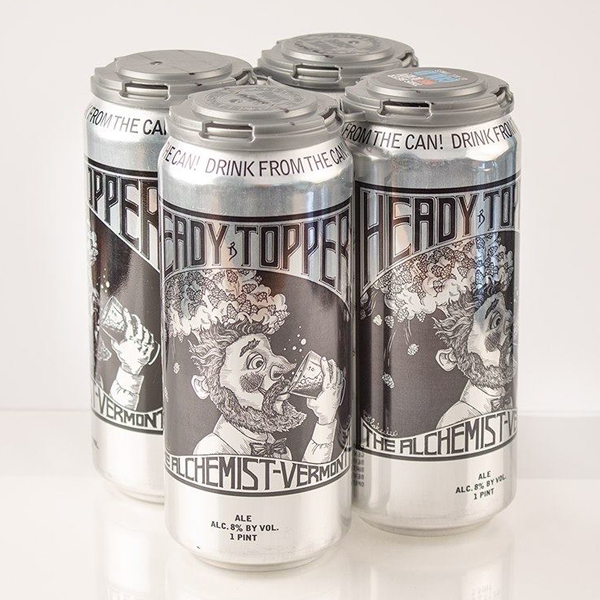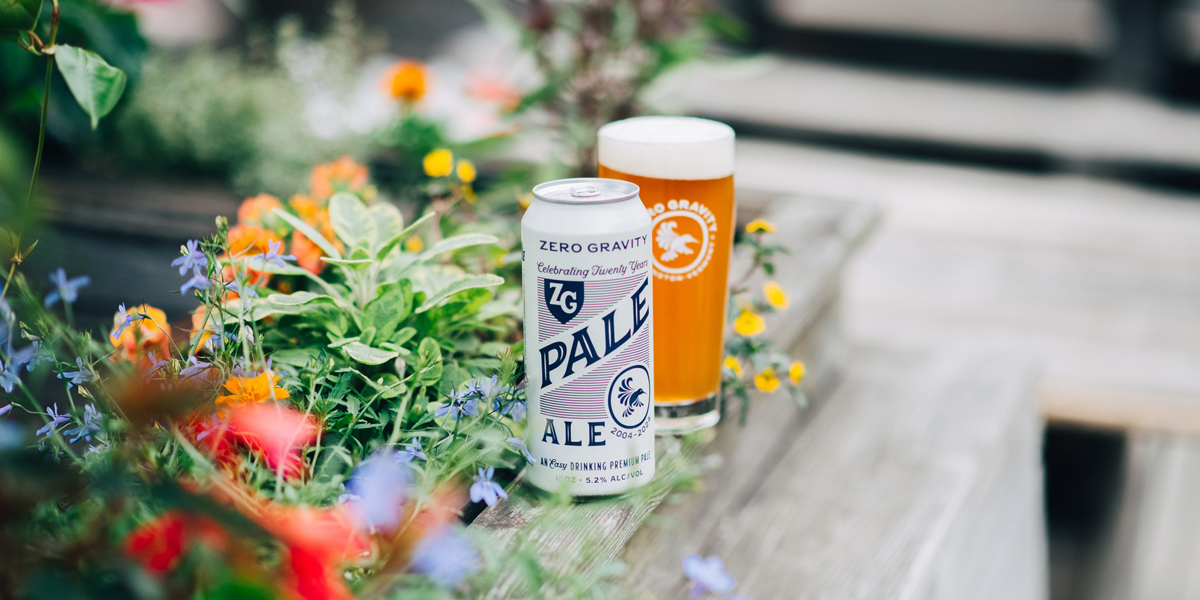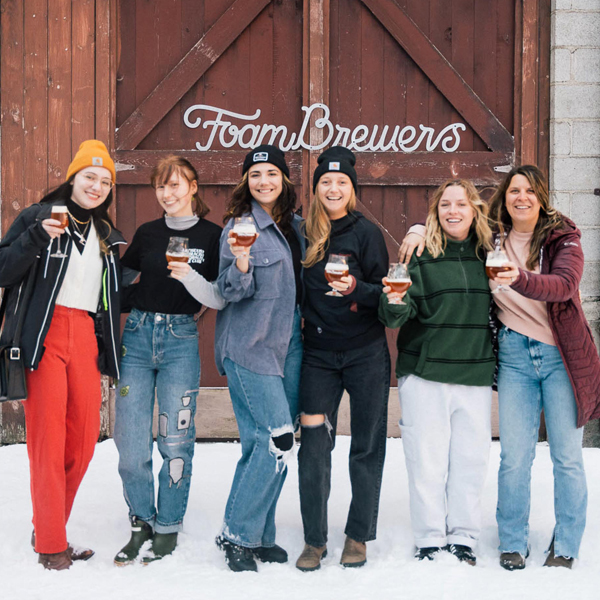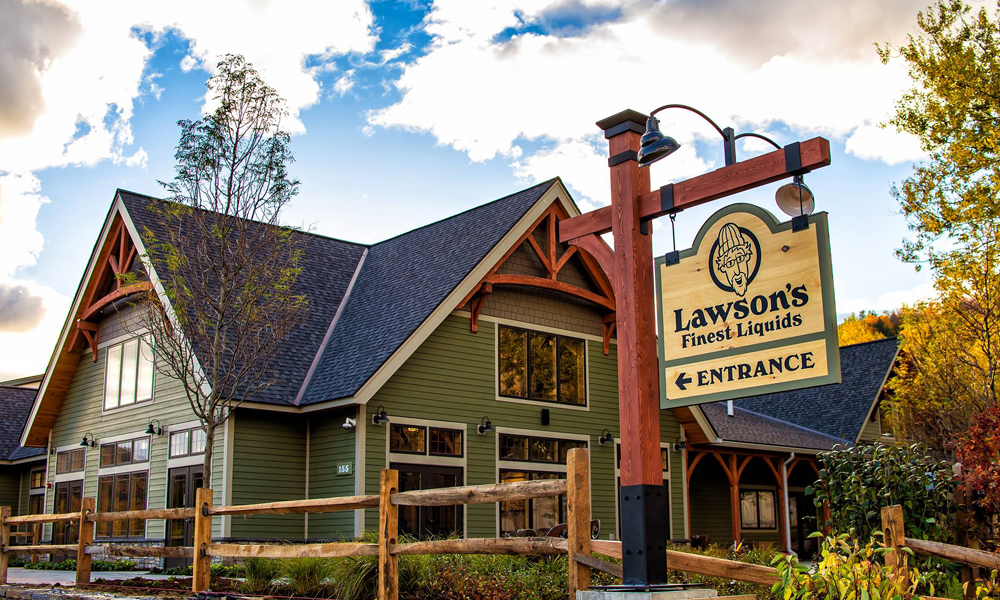[ad_1]
Vermont’s appetite for beer is nothing short of impressive. For such a tiny state with a population the size of a New York City neighborhood, Vermont takes the top spot in the U.S. for the number of breweries per capita: 15.6 for every 100,000 people aged 21 or older. And in an industry historically dominated by males, women in the Vermont beer industry are woven into the fabric of the breweries. We talked to women at four of the top breweries to find out how they got into industry and why they stayed.
The Alchemist | Stowe, VT
Ninety percent of the beer made at The Alchemist in Stowe, Vermont, is consumed in state. Even though Heady Topper, their transcendent double IPA, has been named a top beer for 20 years, the owners will never sacrifice the heart and soul of what makes their beer taste so good: the people who make it and the quality of the ingredients.

The four women I talked to at The Alchemist have worked there for a combined 45 years and none of them originally had a background in beer. Starting in front of house jobs in retail or at the restaurant, they all worked their way up to brewing, cellaring, and CFO, jobs more typically held by men.
“We’ve all experienced differential treatment based on being women, but never at The Alchemist,” says Casey Brooks, a brewer of eight years whose first career was as an 8th grade middle school science teacher. “When I’m traveling and I say I work for The Alchemist, most people assume I have an office job. They never guess I’m brewing the beer itself.”
“Brewing is a dangerous job,” says Priscilla Nelson, a cellarperson who has also worked in online retail and on the canning line at The Alchemist. “It’s hot, everything is heavy, there’s a lot under pressure, and we work with acidic chemicals.” But this hasn’t deterred her one bit.
As CFO, Ashli Roberts has sent emails that remained unanswered until a male colleague sent the same email. “There are vendors who won’t respond unless a guy sends the request,” she said, rolling her eyes. But the focus remains unchanged.
“I love my job,” says brewer Chelsea Nolan. “We keep things simple and focus on what we do well and that’s brew the best beer.”
Small breweries increasingly have access to automate a lot of processes, but Roberts believes in the importance of people power. “It [the quality of the beer] might be close, and it might be good enough for some palates, but not for us.”
Zero Gravity | Burlington, VT
Anna Novine has an undergraduate degree in biology from Ithaca College and a master’s in environmental law and policy from Vermont Law School, but after an internship at The Nature Conservancy didn’t translate to a job, she took a different turn. “I went to the American Brewers Guild and got a degree in brewing science,” she said. “I spent almost three years brewing for Zero Gravity [in Burlington] then started leading a team of six other brewers.”

Their stellar beer selection ranges from Green State Pilsner, to Little Wolf pale ale, to Conehead hazy IPA. Novine transitioned from the brewhouse to overseeing the expansion of contract brewing. “We can produce about 17,000 barrels at this main facility, but when we bought the old Magic Hat space, we increased production by 35,000 barrels just for Zero Gravity.” They now distribute all over New England and throughout the Atlantic states.
“Women have always been a part of Zero Gravity,” says Novine. “The original head brewer, Destiny Saxon, is a legend. I’ve always felt supported here to follow my passion. We’re all in it together and we all just like beer.”
As for advice for women who want to get into the beer industry, Novine didn’t hesitate. “Don’t be afraid to get your hands dirty. A lot of cleaning goes into brewing and you need to take pride in your workspace. Volunteer to do everything and get out of your comfort zone.” She then added, “And learn how to use tools that are unfamiliar. It’s really satisfying to be able to fix the equipment yourself and not have to ask a man.”
Foam Brewers | Burlington, VT
Of the five partners who started Foam Brewers in Burlington, one is a woman. “I started as a bartender at Magic Hat in 2007,” says Dani Casey, business and finance manager. “That’s where I met the brewmaster, Todd. We then all worked at Switchback, and now we are all here. I guess you could say we’ve been around a while!”

Foam Brewers is one of the newest breweries in Vermont, having opened in 2016, but they have a very different model than the others. “We don’t have a flagship beer,” states Casey, “and every label is by a different local artist—we’re still really small as we brew around 7,000 barrels a year.” In comparison, The Alchemist brews about 30,000 barrels and Zero Gravity approximately 52,000 barrels a year. “We like to stay creative,” Casey quips.
And that’s exactly what the women of Foam Brewers did when they launched Rise of the Valkyries. Originally coined “the Women of Foam,” the name was changed to be more inclusive of everyone who wanted to join. The Valkyries is an empowering club with the sole purpose of raising money to give back to the community. Riot Grrrl, the first canned beer brewed by the Valkyries, was sold as a fundraiser for Planned Parenthood. Now the organization hosts quarterly events for female-identifying folks in the brewing industry so everyone can learn more about the brewing process.
“We’re focusing on community events that bring everyone in,” says Casey. “We’re making wine from local grapes, brewing fruit sours, and opening a restaurant next door.” A community of like-minded creative beer lovers came together to start Foam. “Now we’re just trying to create a place where others can feel accepted to follow their passions, too.”
Lawson’s Finest Liquids | Waitsfield, VT
When Adeline Druart moved to Vermont at 21 years old, her English wasn’t the best but she knew about good cheese. The daughter of a dairy farmer and a graduate of the national dairy school in France, she came to Vermont for a two-month cheesemaking internship as part of her master’s degree in biotechnology. In her first week at Vermont Creamery, she met the other intern, who would later become her husband, and after graduating, she returned to Vermont Creamery as operations manager. In her 19-year tenure with the dairy, Druart helped make them one of the most successful cheesemaking companies in the U.S.

So when she took the CEO position at Lawson’s Finest Liquids in Waitsfield, it wasn’t by accident. “I left Vermont Creamery without a plan,” Druart says. “I knew that I had done all that I could and it was time for something new. I knew the kind of company I wanted to work for—one with integrity, an incredible product, and a strong community—and coming to Lawson’s was serendipitous.”
Druart has never been one to shy away from a challenge. “It’s both lonely and welcoming being one of the few female CEOs,” she said. “But I’m focusing on bringing more people to Lawson’s in the Mad River Valley versus just trying to send more beer to different places. We’ve expanded the menu with high-end, seasonal food, have live music weekly, and oysters on Thursdays,” said Druart. “Once people see that the Mad River Valley is a destination and visit us, they’ll feel how much more Lawson’s is than just beer. Our business is as much about the people who work here as the community we serve.”
Will this strategy work to grow the company? Only time will tell, but in the meantime there wasn’t an empty seat on a Tuesday at the brewery in a town of only 228 people.
[ad_2]
Source link

